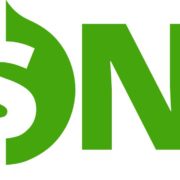Are You Paying Too Much for Your Real Estate Loans?
Are You Paying Too Much for Your Real Estate Loans?
Hey there! Ever wonder if you’re paying too much for your real estate loans? It’s a common concern, especially with all the myths floating around about hard money being a wallet-drainer. But fear not, because we’ve got a nifty tool that can help you cut through the confusion and get a clear picture of what your loan will really cost you. Let’s dive in!
The Loan Cost Optimizer: Your Money-Saving Sidekick
Introducing the Loan Cost Optimizer! This handy tool takes the guesswork out of loan expenses by allowing you to compare costs and fees from different lenders. Think of it like a virtual cost calculator tailored specifically for real estate investors.
How It Works
-
Input Your Costs:
Start by plugging in your loan details, such as interest rates, loan duration, and any additional fees.
-
Compare Your Options:
The Loan Cost Optimizer crunches the numbers and presents you with a side-by-side comparison of different loan scenarios.
-
Find Your Best Deal:
Explore various loan options based on factors like project duration and required down payment to determine the most cost-effective choice for your needs.
Debunking Myths
There’s a misconception that hard money loans always come with exorbitant costs. However, our tool reveals that hard money isn’t always the priciest option. In fact, you might be surprised to find that it often stacks up favorably against other lenders, especially when considering factors like speed and flexibility.
Quality vs. Complexity
When it comes to choosing a lender, quality matters—but so does simplicity. While banks may offer perceived “higher quality” loans, they often come with a mountain of paperwork and stricter requirements. On the other hand, hard money lenders offer a streamlined process with fewer hoops to jump through, making them a viable option for many investors.
The Bottom Line
At the end of the day, what matters most is finding a loan that fits your needs and budget. The Loan Cost Optimizer empowers you to make informed decisions about your financing, helping you save both time and money in the long run.
Get Started Today!
Ready to take control of your loan costs? Head over to hardmoneymike.com to download the Loan Cost Optimizer for free. It’s easy to use, customizable to your specific project, and could potentially save you thousands of dollars. So why wait? Happy investing!
Watch our most recent video to find out more about: Are You Paying Too Much for Your Real Estate Loans?



